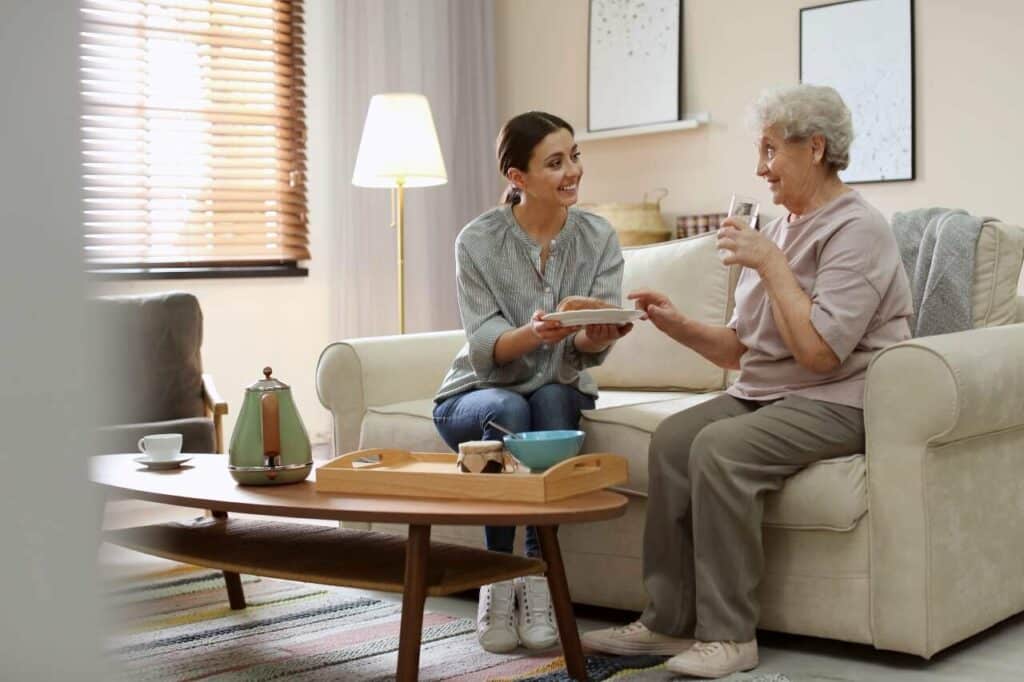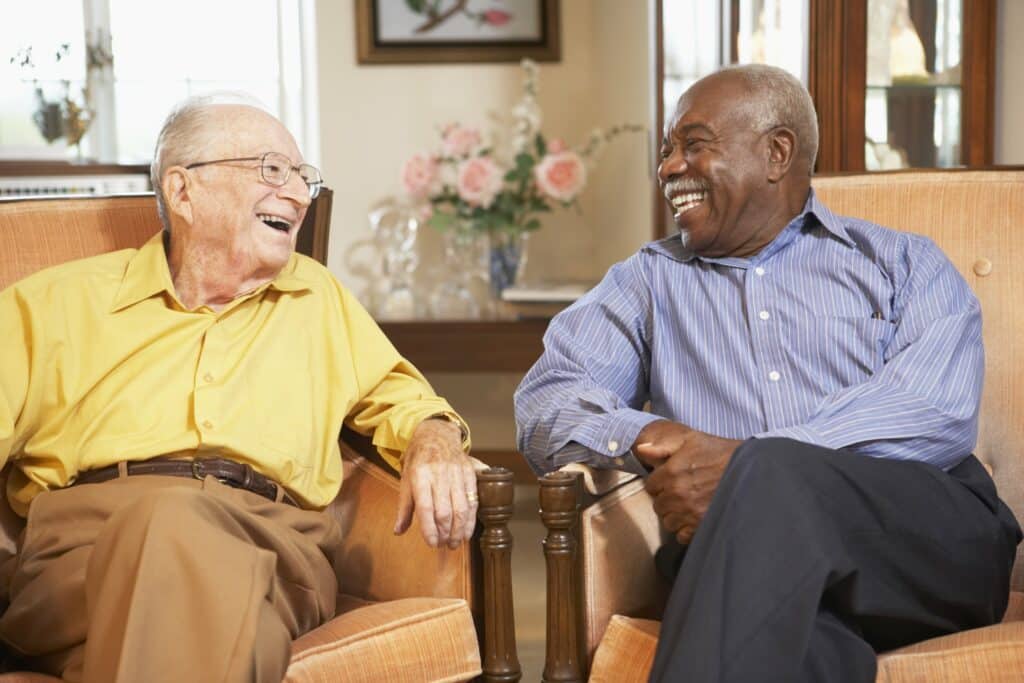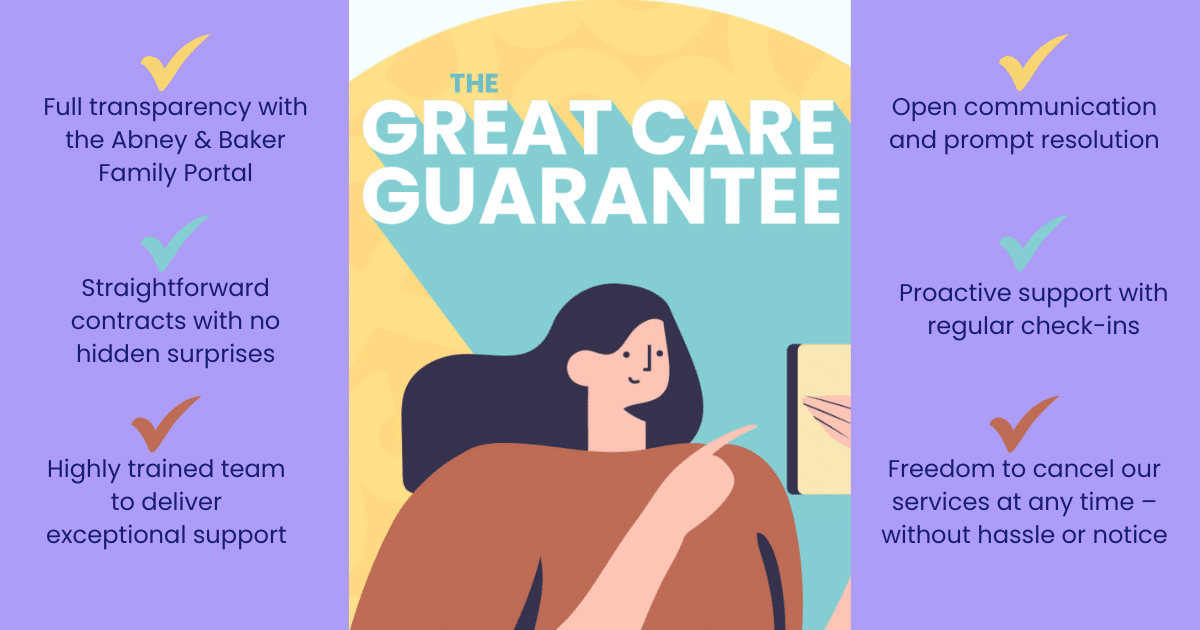Tips For Communicating With A Person With Dementia
Dementia affects each patient differently, so it’s important to communicate with them in the right way for them. It’s key to listen carefully to your loved one and take time to process what they have said before you respond to them. You can also have meaningful nonverbal communication with someone diagnosed with dementia.
We’ve compiled a few tips on how to better communicate with your loved one with vascular dementia, mixed dementia, lewy body dementia, frontotemporal dementia or Alzheimer’s disease.
Remember, every patient’s experience of dementia is different. You can use the tips on how to talk to someone with dementia to help you improve communication between you and your loved one and reduce frustration and friction.
Although your loved one might be upset by the news of diagnosis it can also be good for them. Because it can be an answer for their brain activity, declining cognitive function or cognitive impairment.
In this blog we talk about why early diagnosis of dementia is important and how it can help you with the challenges ahead.
Tips For Preparing To Communicate With A Person With Dementia

Here are some tips for creating the right setting to have a conservation with your loved one with dementia or showing symptoms of dementia:
- Remember to Find a quiet and calm place where you can both have a relaxed conversation. Different forms of dementia can make it difficult for your loved one to handle noise or new places. It’s best that they are free of distractions, especially while trying out new techniques for communicating (or just having quality time). Make sure they are comfortable and familiar with a place, i.e. their favourite room or place to sit.
- When someone develops dementia, they may feel stressed and even more confused if you rush them. Allow plenty of time to talk to your loved one before sitting down for a chat. It’s important that both of you are in good moods! Remember these things can help make our interactions smoother too.
- One simple technique for memory problems is to think about previous conversations with your loved one and what helped you communicate effectively. If a certain subject upsets them, try to avoid it, but if it occurs, and you have the same conversation over and over again, work through the problem with your loved one, always being calm. Ask them why this bothers them and how they feel. This will help you detect what they are truly feeling and help you resolve the issue together.
An example of this is: Your loved one keeps asking to go home.
If they are already at home, it’s best not to keep repeating “you are at home”. Instead, try asking them why does it not feel like home? You’ll be amazed at the honesty you’ll get and working through the problem logically with them will help that part of the brain relax and move on.
- Keep a topic in mind to discuss so the conservation goes smoothly. Or you can discuss anything in the nearby surroundings – that your loved one can see, hear or touch.
- Keep things light-hearted; find ways to make conversation fun, like making jokes together (even bad ones!), playing problem solving games that require little effort from both parties, watching their favourite TV programme or listening to their favourite music.
- There can be a certain time of day where your loved one is more relaxed and calmed. Note these times when your loved one is at their best in their daily life. You can use this time to ask them important questions or anything you want to talk about.
- Sudden changes can happen with your loved ones’ dementia, including a change in their feelings and mood. You should make most of the time they are feeling good and find communication strategies to adapt when they aren’t in such a good mood.
Tips For Listening To A Person With Dementia
One of the most important communication strategies is to listen carefully. This will allow you to be more empathetic and better understand your loved one. Maintain eye contact and nod while chatting with them.

Your loved one’s body language can show how they are feeling and what mood they are in. People with dementia may not be able to express themselves as clearly verbally so if you are not able to understand your loved one, you can ask your loved one to repeat themselves. You can try to rephrase their response to understand what they have said. Just try and do it in as calm a manner as possible.
If they cannot find the right word for a sentence, ask them to explain it differently. Look for clues, and if they cannot find the word, ask them to describe it.
Memory loss is common in dementia patients, so it will be normal for your loved one to experience forgetfulness. Therefore, you should allow plenty of time to respond and process the information for the response.
Try not to interrupt the person – even to help them find a word – as it can break the pattern of communication.
If they are feeling sad, let them express this. Give them the time they need and try to listen to them with an empathetic ear. This will help you build a relationship with them to make them feel loved and supported.
Ways To Communicate With A Person With Dementia

- When having a conversation with your loved one affected with dementia, make sure they clearly see and hear you. Try to be at eye level with them.
- Sit at a distance at which your loved one is comfortable and you can communicate clearly. You should remain calm in case of an abrupt change in their behaviour.
- Keep a slower pace of conversation and use short, simple phrases. You should still respect them and should not talk to them as you would a child.
- If you are trying to figure out how they feel, or if you want to find out about their day/any event, ask them an open-ended question. This way they will not feel pressured or forced, and they will give you a more natural response.
- Give them plenty of time to answer so they can process the information and try to communicate in a conversational way.
- Include them in conversations so they feel valued and part of it. Also, don’t force them into conservation. Maintaining a moderate tone of voice is also important.
- Prompts can help, for instance pointing at a photo of someone or encouraging your loved one to hold and interact with an object you are talking about.
The Importance Of Body Language And Physical Contact

To have a meaningful conversation with a loved one diagnosed with dementia, you not only need verbal communication skills, but also non-verbal communication skills. This form of communication will help you and your loved one better understand each other.
Body movements such as gestures, and facial expressions all convey meaning. Body language and physical contact become significant when speech is difficult for a person with dementia.
Physical touch as a pat or holding their hands can help them feel reassured. Remember to keep an eye on their body language if they are uncomfortable and tense, you should back off.
It’s important to encourage them to communicate what they want, and this might require you to put in some effort. Physical contact, such as a gentle touch, can go a long way, since a person with memory loss might not recognise you immediately, but they might recognise you through the way you interact.
Encourage Someone With Dementia To Communicate
If you are caring for your loved one affected with dementia, try to start conversations with them so they are encouraged to communicate. Speak slowly and clearly while maintaining eye contact when talking to them.
Give the person time to respond and encourage them to join the conversation with other family members. Never ridicule, patronise or argue with them. Make them feel heard even if what they said is out of context or does not have any meaning. Give them simple choices and rephrase questions if they are not able to answer them.
Contact Abney & Baker For Dementia Care And Advice.
Signs and symptoms of dementia progress at different paces depending on the type of dementia your loved one has. Their ability to process information gets progressively weaker, and their responses can become delayed as your loved one progresses to late stages of dementia.
After the diagnosis of dementia or Alzheimer’s disease, you as the primary caregiver will have to make a series of decisions, including whether to reach out for support from home care services.
At Abney & Baker, our caregivers are trained to provide care at home to your loved one with dementia, so they can continue to live a fulfilling, independent and happy life in the comfort of their own home.
With affordable pricing, our care services for seniors with dementia are trusted by many clients in your area.
To learn more about our dementia care services in Melksham, West Wiltshire, Bath & North East Somerset click here: https://www.abneyandbaker.com/
If you do want to talk to us about the challenges you’re currently facing and how we may be able to support you and your loved one, then do give us a call or click below to book a call and we’ll give you a shout back.
Helping your loved one to continue living independently and confidently in their own home.
By providing a range of support at home, we’re helping many clients across Bath & North East Somerset and West Wiltshire retain their independence and stay in control in the comfort of their own homes.
Remember we’re always here if you want to chat about your care options. Just get in touch:
Call 0333 043 4880 – Email enquiries@abneyandbaker.com – Book a call here














